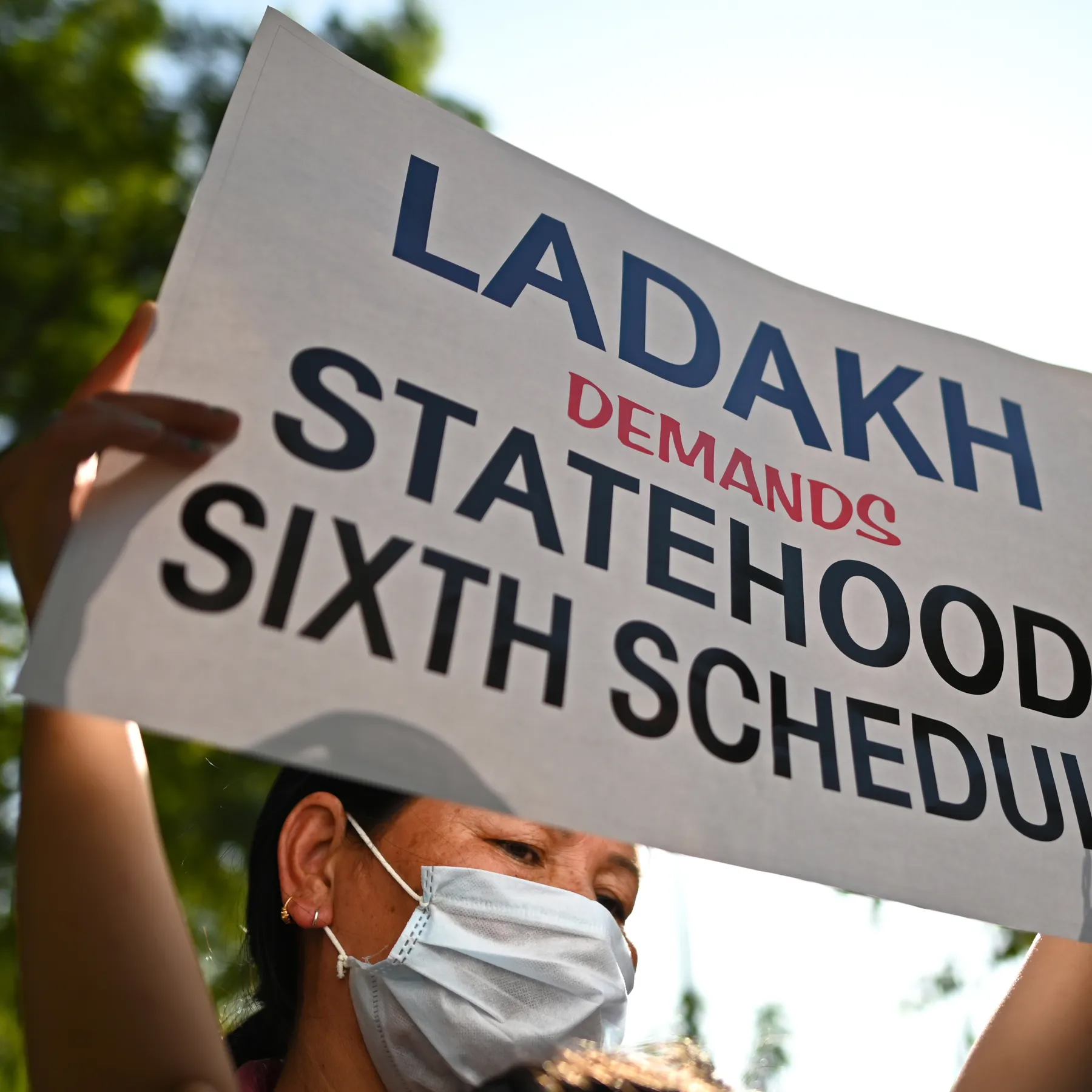 Sanjay Pandita Sanjay Pandita
Early Times Report
Jammu, Aug 13: Despite the assertive push by the Kargil Democratic Alliance (KDA) and the Leh Apex Body (LAB) for statehood and inclusion under the Sixth Schedule, a growing section of Ladakhis remain unconvinced, highlighting internal divisions over the future political status of the region.
While the Bharatiya Janata Party (BJP) has not yet issued an official stance on the contentious issues of statehood and constitutional safeguards, senior party leader and Vice Chairperson of the Ladakh Autonomous Hill Development Council (LAHDC), Leh, Tsering Angchuk, has voiced strong reservations against the statehood demand.
In a detailed statement shared on social media, Angchuk warned that the move to grant Ladakh full statehood may have serious long-term consequences.
“The demand for statehood may seem emotionally appealing, but practically, it could spell disaster for Ladakh—especially in terms of economic sustainability and governance,” he wrote.
Angchuk argued that Ladakh lacks a robust internal revenue base, with no major industries, large-scale businesses, or significant tax sources.
“Once converted into a state, Ladakh would lose the assured central funding that comes with Union Territory status. This would force the new state to rely heavily on local taxation, placing a severe burden on the common people,” he explained.
He further pointed out that the government employees, who currently draw salaries as per central government scales, may see drastic pay cuts or delays due to a resource crunch.
“There is a real risk that salaries could be halved or disbursed irregularly, causing unrest among thousands of employees.”
Citing the potential impact on development, Angchuk cautioned that key sectors such as healthcare, education, irrigation, and public works could suffer due to lack of funds.
“Existing UT-level schemes and centrally sponsored projects might not continue with the same efficiency or support,” he added.
He also warned that statehood could deepen regional disparities.
“The benefits of statehood may disproportionately go to a few influential sections in Kargil, leaving remote areas like Nubra, Changthang, and Zanskar politically sidelined.”
Angchuk further argued that statehood would open the door to intense political wrangling in a region already struggling with geographic and economic vulnerabilities.
“Ladakh could become a battleground for regional, communal, and party politics, leading to disunity and instability.”
In conclusion, he cautioned the people of Ladakh to weigh the practical implications of statehood beyond emotional rhetoric.
“People must ask who will truly benefit and at what cost. The burden of taxation and the risks to governance and unity are too serious to ignore.” |
